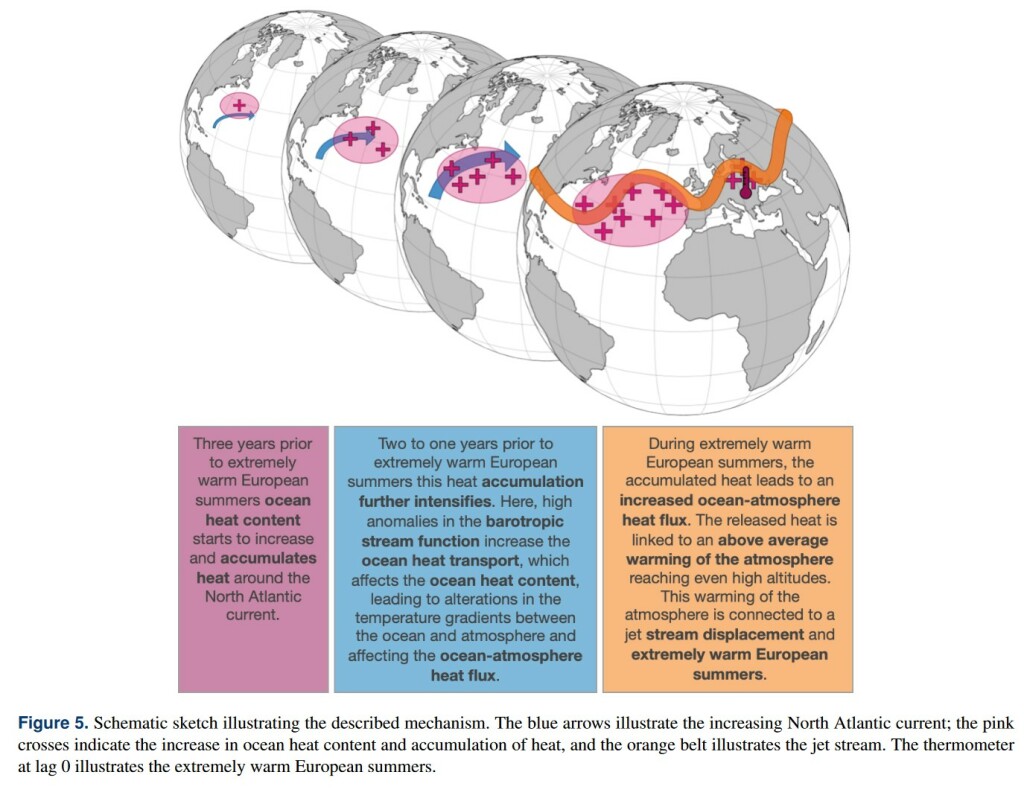Abstract. The internal variability of European summer temperatures has been linked to various mechanisms on
seasonal to sub- and multi-decadal timescales. We find that sub-decadal timescales dominate summer tempera-
ture variability over large parts of the continent and determine mechanisms controlling extremely warm summers
on sub-decadal timescales. We show that the sub-decadal warm phases of bandpass-filtered European summer
temperatures, hereinafter referred to as extremely warm European summers, are related to a strengthening of
the North Atlantic Ocean subtropical gyre, an increase in meridional heat transport, and an accumulation of
ocean heat content in the North Atlantic several years prior to the extreme summer. This ocean warming af-
fects the ocean–atmosphere heat fluxes, leading to a weakening and northward displacement of the jet stream
and increased probability of occurrence of high-pressure systems over Scandinavia. Thus, our findings link the
occurrence of extremely warm European summers to the accumulation of heat in the North Atlantic Ocean and
provide the potential to improve the predictability of extremely warm summers several years ahead, which is of
great societal interest. https://pure.mpg.de//rest/items/item_3404875_18/component/file_3561695/content
